K.D. Dowdall's Blog, page 20
May 13, 2019
New Novel by Karen DeMers Dowdall
Soon to be published, this historical time-slip paranormal fiction novel, begins with Sara Windsor Knightly, a modern day Wiccan (a mostly herbal witch), who inherits a 17th century colonial manor in a small colonial town in Connecticut. She turns the manor into a bed and breakfast Inn. Sara discoveries that the house is also haunted by Scottish ghosts who mostly behave themselves.
There is also a ghost witch who was burned at the stake, in 1690, and the ghost witch, a long dead relative of Sara’s, Alice Windsor Hall, wants Sara to rescue her small daughter, Clara, from terrible danger created by a wicked Alchemist posing as a minister, by going back in time to 1690. Sara believes she can’t change the past and will not agree to that request. Soon, however, Sara finds herself transported through time with Captain Christian Windsor-dead for 325 years.
Captain Windsor was a gentleman farmer from 1690, who was also a British Captain in the British Colonies of America during wartime. Captain Windsor was killed in the war of 1690 in Colonial America. He was in charge of a British Brigade during King William’s War of the League of Augsburg against the French occupation of land in British Colonial in America. The French, with the assistance of the Abenaki Indians from Maine, who were against the British for taking their ancestral lands in Maine, chose to fight with the French against the British Colonials in America.
New Novel by K. DeMers Dowdall
Soon to be published, this historical time-slip paranormal fiction novel, begins with Sara Windsor Knightly, a modern day Wiccan who inherits a 17th century colonial manor. Sara soon finds herself transported through time with Captain Christian Windsor, a gentleman from 1690 A.D., who is a British Captain in the Colonies in charge of a British Brigade during King William’s War of the League of Augsburg, and with the beginning of that war, a war begins in the American colonies between the French, with the assistance of the Abenaki Indians from Maine, against the British colonies in America.
May 9, 2019
Word Painting – The Fine Art of Writing Descriptively
This is a reblog from a post I did in 2015, and my, how the years have passed so quickly. After writing four books, I am reblogging, once again, this earlier post. Word Painting, The Fine Art of Writing Descriptively by Rebecca McClanahan (an excerpt from Writer’s Digest, January 2015) Here are four secrets to keep in mind as you breathe life into your characters through description. I did purchase this exemplary book, and I would still keep it on my writing desk today, had not a writer friend borrowed it…three years ago. I hope it comes back home…someday soon. I hope you find Rebecca McClanahan’s non-fiction as helpful as I have when writing description for my characters.
Description that relies solely on physical attributes too often turns into what Janet Burroway calls the “all-points bulletin.”
It reads something like this: “My father is a tall, middle-aged man of average build. He has green eyes and brown hair and usually wears khakis and oxford shirts.”
This description is so mundane, it barely qualifies as an “all-points bulletin.” Can you imagine the police searching for this suspect? No identifying marks, no scars or tattoos, nothing to distinguish him. He appears as a cardboard cutout rather than as a living, breathing character. Yes, the details are accurate, but they don’t call forth vivid images. We can barely make out this character’s form; how can we be expected to remember him?
When we describe a character, factual information alone is not sufficient, no matter how accurate it might be. The details must appeal to our senses. Phrases that merely label (like tall, middle-aged, and average) bring no clear image to our minds. Since most people form their first impression of someone through visual clues, it makes sense to describe our characters using visual images. Green eyes is a beginning, but it doesn’t go far enough. Are they pale green or dark green? Even a simple adjective can strengthen a detail. If the adjective also suggests a metaphor—forest green, pea green, or emerald green—the reader not only begins to make associations (positive or negative) but also visualizes in her mind’s eye the vehicle of the metaphor—forest trees, peas, or glittering gems.
The problem with intensifying an image only by adjectives is that adjectives encourage cliché.
It’s hard to think of adjective descriptors that haven’t been overused: bulging or ropy muscles, clean-cut good looks, frizzy hair. If you use an adjective to describe a physical attribute, make sure that the phrase is not only accurate and sensory but also fresh. In her short story “Flowering Judas,” Katherine Anne Porter describes Braggioni’s singing voice as a “furry, mournful voice” that takes the high notes “in a prolonged painful squeal.” Often the easiest way to avoid an adjective-based cliché is to free the phrase entirely from its adjective modifier. For example, rather than describing her eyes merely as “hazel,” Emily Dickinson remarked that they were “the color of the sherry the guests leave in the glasses.”
Strengthen physical descriptions by making details more specific.
In my earlier “all-points bulletin” example, the description of the father’s hair might be improved with a detail such as “a military buzz-cut, prickly to the touch” or “the aging hippie’s last chance—a long ponytail striated with gray.” Either of these descriptions would paint a stronger picture than the bland phrase brown hair. In the same way, his oxford shirt could become “a white oxford button-down that he’d steam-pleated just minutes before” or “the same style of baby blue oxford he’d worn since prep school, rolled carelessly at the elbows.” These descriptions not only bring forth images, they also suggest the background and the personality of the father.
Select physical details carefully, choosing only those that create the strongest, most revealing impression.
One well-chosen physical trait, item of clothing, or idiosyncratic mannerism can reveal character more effectively than a dozen random images. This applies to characters in nonfiction as well as fiction. When I write about my grandmother, I usually focus on her strong, jutting chin—not only because it was her most dominant feature but also because it suggests her stubbornness and determination. When I write about Uncle Leland, I describe the wandering eye that gave him a perpetually distracted look, as if only his body was present. His spirit, it seemed, had already left on some journey he’d glimpsed peripherally, a place the rest of us were unable to see.
As you describe real-life characters, zero in on distinguishing characteristics that reveal personality: gnarled, arthritic hands always busy at some task; a habit of covering her mouth each time a giggle rises up; a lopsided swagger as he makes his way to the horse barn; the scent of coconut suntan oil, cigarettes, and leather each time she sashays past your chair.
Note: As a writer, I found all of Rebecca McClanahan’s descriptive suggestions really adaptive to almost any genre. I hope you do too.
May 8, 2019
The Decline of Self-Publishing
Ruth Ann Nordin, writer and author, has written a very important post about publishing and self-publishing in today’s crazy book market. I believe she has made some very salient points of interest that may or may not effect authors and self-publishing. All-in-all, I do believe there will be a decline in self-publishing. This may be a good thing for serious writers or a bad thing.
Also, there is the problem of KU (Amazon Kindle Unlimited) – putting up a book cover without a bound book and that has led to scammers flooding the market. Thank you, Ruth Ann for a great post about a subject that effects all authors whether self-published or traditionally published.
I’ve been taking in what authors have been discussing in author groups and speaking privately with a couple of author friends. My gut feeling has been telling me that I better make plans on what I should do when self-publishing is no longer the best venue for publishing. I wish I could dig up a comment someone had made back in 2010 about trends in publishing because what he said seems to be playing out in front of me. But one thing he said was that self-publishing would take off for a while, and then there would be a point where it went into decline. From the decline would come the resurgence of traditional publishers.
I have to admit, I thought that guy had a gloomy outlook on things at the time. Nevertheless, his words had stuck with me over the years, and the more I look around at what’s…
View original post 968 more words
May 6, 2019
Of What Is Trump Afraid?
“Why is Trump afraid of Mueller testifying? If he is innocent, then he should have nothing to fear. If he is guilty, then he is trying to stop justice” written by Professor Charles F. French.
I know, speaking for myself, that many writers and authors are afraid they might lose readers and book sales or be sanctioned in someway, so you may not want to take a stand one way or the other. I don’t think that is what would happen. The truth is, is that most people who love to read see the danger out there and would feel more secure in their lives, if more authors spoke up – one way or another. Thank you.
 charles french words reading and writing
charles french words reading and writing
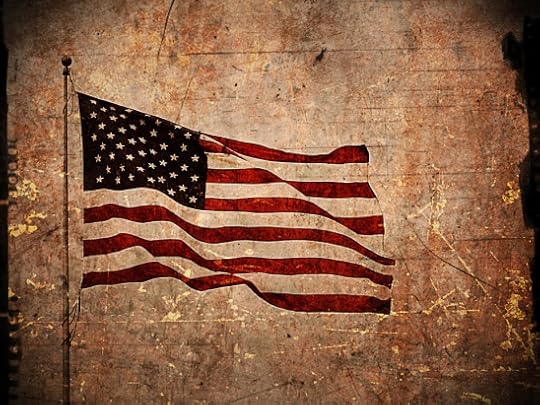
I typically try not to post about politics in this blog, but it is more and more difficult not to say anything. Our President is acting like he is above the law, and he now has an Attorney General who behaves like a personal lawyer to Trump and not the chief law enforcement officer of the United States of America.
It feels very much like a massive constitutional crisis or crises will soon occur, and I fear for our very democracy.
Our first President, George Washington, in his farewell address spoke of both the dangers of not obeying the law and of the perils of political parties:
But the Constitution which at any time exists, until changed by an explicit and authentic act of the whole people, is sacredly obligatory upon all. The very idea of the power and the right of the people to establish government presupposes the…
View original post 266 more words
May 3, 2019
Who Are Some of Your Favorite Victorian Writers?
I love historical fiction and romance. It just so happens that Emily Bronte, Charles Dickens, and Thomas Hardy, are three of my favorite writers in this genre, along with Charlotte Bronte, who is my most favorite female writer of this time period. Although, it is very difficult not to love most historical writers of this era. Although, a favorite too, Jane Austin’s books came before the Victorian era, but, not so, Alexander Dumus, Edgar Allen Poe, Jules Verne, and Mark Twain, to name of few. Thank you, Prof. Charles French for this opportunity to remember them.
 charles french words reading and writing
charles french words reading and writing
In the next entry in my series on favorite writers, I want to consider Victorian authors, with a time period defined as the time of Queen Victoria’s reign–1837-1901. This period has been filled with many excellent writers, and I will focus on only a few as my choices. I could, however, easily expand my list.
Without further discussion, here are three of my favorite Victorian writers:
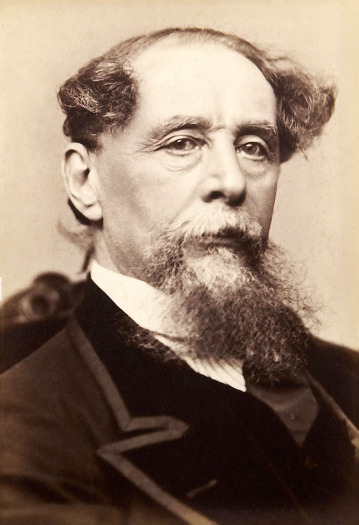
Charles Dickens
Dickens was an extraordinary success, both as a popular writer and with critics. His work is part of the body of literature, and he has touched much of the population of the world. Among his most important and well-known pieces are A Christmas Carol, A Tale of Two Cities, and Great Expectations.
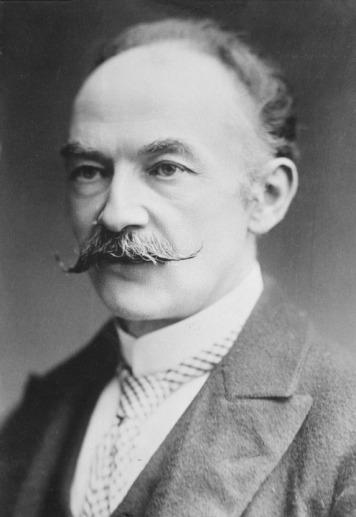
Thomas Hardy
He achieved much in fewer novels than Dickens. Among his novels are Tess of the d’Urbervilles, Jude the Obscure, and Far…
View original post 40 more words
April 30, 2019
we had wings
This is an exceptional philosophical poem that is unique and bold. It gives a different view of the story of Eve, and gives it wings, blessings, and joy. Thank you Holly for a beautiful view of a time when we had wings.
Then, wisdom grew from fruit
and time was a seedling.
All creatures spoke the same,
hymns of bats, the breath of horses.
We were winged and freedom
was etched on the soles of our feet.
Pathways in the earth and sky were known,
not charted.
Now we step naked into the blazing sun.
Bare ourselves to golden rivers and the
awesome tidal thunder.

Dali and The Garden of Eden
April 26, 2019
“The Story of Henry: Chapter and Verse”
 via “The Story of Henry: Chapter and Verse” by liz gauffreau.com. on wordpress.com
via “The Story of Henry: Chapter and Verse” by liz gauffreau.com. on wordpress.com
This is an extraordinary short story and don’t miss out by not reading it. Liz Gauffreau is an incredibly talented writer as well as a published author in many literary venues.
April 25, 2019
Response to Evil: Revisited
This post, by Professor Charles F. French, is too important not to reblog. I too, am a Humanist and always speak the truth to people who rather hide under a basket, just hoping that their personal world won’t be involved, but it will, sooner than later.. There will be regrets, but regrets and blame will not change what has already happened.
 charles french words reading and writing
charles french words reading and writing
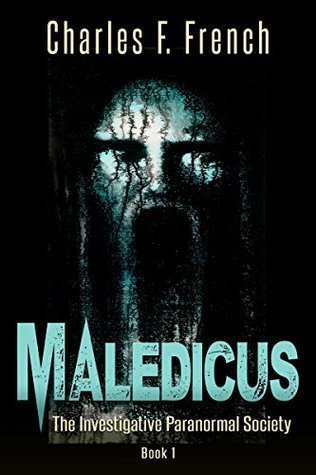
Edmund Burke said, “The only thing necessary for the triumph of evil is that good men do nothing.” This issue is one of the central themes of my horror novels Maledicus: Investigative Paranormal Society Book I and Gallows Hill: The Investigative Paranormal Society, Book 2 and is also one of the main issues that has faced humanity in the last one hundred years. From the consequences of millions slain in the Holocaust to one single person murdered on the streets of New York City while many watched and did nothing, humanity has been confronted with this dilemma. We see brutality, oppression, and bigotry towards others on an almost daily basis. When finding evil threatening others, what do we do? Do we ignore it and pretend that it is not there? Do we call authorities to try to handle the situation and hope they arrive in time? Or do we inject…
View original post 258 more words
Quote of the day
This quote, by Shelby Foote, is brilliant. Historians, writers, and authors do recreate history by their research or with their love of presenting history by bringing history to life.
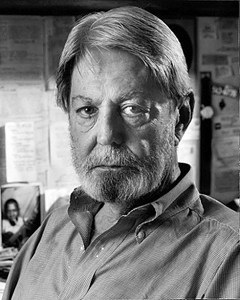 “The point I would make is that the novelist and the historian are seeking the same thing: the truth — not a different truth: the same truth — only they reach it, or try to reach it, by different routes. Whether the event took place in a world now gone to dust, preserved by documents and evaluated by scholarship, or in the imagination, preserved by memory and distilled by the creative process, they both want to tell us how it was: to re-create it, by their separate methods, and make it live again in the world around them.” Shelby Foote, author and historian
“The point I would make is that the novelist and the historian are seeking the same thing: the truth — not a different truth: the same truth — only they reach it, or try to reach it, by different routes. Whether the event took place in a world now gone to dust, preserved by documents and evaluated by scholarship, or in the imagination, preserved by memory and distilled by the creative process, they both want to tell us how it was: to re-create it, by their separate methods, and make it live again in the world around them.” Shelby Foote, author and historian






